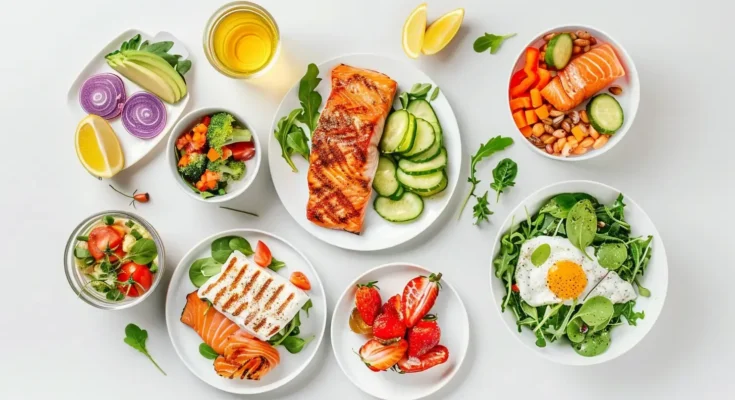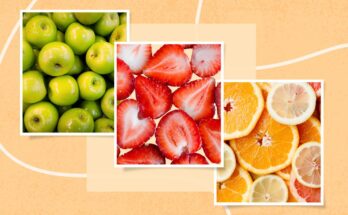For generations, the notion of eating three balanced meals a day—breakfast, lunch, and dinner—has been ingrained in our daily routines. It’s the standard we were taught to follow from childhood, reinforced by cultural practices and societal expectations. But in an era of intermittent fasting, flexible eating patterns, and evolving dietary philosophies, the question arises: Do you really need three meals a day?
To unpack this, we reached out to registered dietitian Sarah Thompson to provide a professional perspective on the matter. Here’s what she had to say about the practicality, health, and science behind our meal habits.
The History of the Three-Meals-a-Day Concept
Before diving into whether three meals a day is essential for health, it’s helpful to understand where the idea comes from. The three-meals-a-day tradition has roots in the agricultural revolution. In pre-industrial times, people ate primarily two meals a day, with a substantial meal at midday and a lighter supper in the evening.
However, during the 19th century, the industrial revolution played a significant role in changing eating habits. With longer working hours and more structured schedules, especially in urban areas, people began to rely on three meals—breakfast, lunch, and dinner. The rise of advertising and food production also helped reinforce the idea that three meals were the ideal approach for optimal health and productivity.
Is Three Meals a Day Still Necessary?
1. Individual Needs Vary
One of the first points Sarah Thompson makes is that the “three meals a day” rule isn’t universal. “There’s no one-size-fits-all answer to how many meals you should eat,” she explains. “It depends on a variety of factors like your lifestyle, activity levels, metabolism, and personal health goals.”
For some people, having three meals a day works well because it fits their schedule, prevents excessive hunger, and helps them maintain energy throughout the day. For others, the rigid structure of three meals may not be necessary or even beneficial. Some people thrive on smaller, more frequent meals or may prefer intermittent fasting, where they eat within a limited time window.
2. Quality Over Quantity
Thompson emphasizes that the quality of what you eat is more important than the number of meals. “The idea that you need exactly three meals to stay healthy is outdated. It’s about the nutritional content and timing of those meals,” she notes. For example, someone who skips breakfast but has a nutrient-dense lunch and dinner may be just as well-nourished as someone who follows the traditional three-meals-a-day approach.
“People often overlook the importance of balanced meals that include whole grains, lean proteins, healthy fats, and lots of fruits and vegetables,” she continues. “Whether you eat two meals, three meals, or six meals, it’s the nutritional quality that truly counts.”
3. Flexibility with Fasting and Snacking
Intermittent fasting, a popular trend where you restrict eating to specific windows of time, is a great example of how meal timing can be more flexible. Some people follow an eating window such as 16:8 (eating during an 8-hour period and fasting for the remaining 16 hours). Others prefer eating just two meals a day, with a longer period of fasting overnight.
This approach can be effective for weight management, improved metabolic health, and better blood sugar control, as studies have shown. However, intermittent fasting might not be suitable for everyone, particularly for individuals with certain medical conditions or those who need higher energy intake, such as athletes or people with a fast metabolism.
What About Snacking?
Another aspect to consider is snacking, which has become a common habit in modern diets. Thompson suggests that snacking isn’t inherently bad, but it should be approached with mindfulness. “Snacking can be a great way to maintain energy between meals or to ensure you’re getting enough calories and nutrients if you have higher energy needs.”
She recommends opting for snacks that provide protein, healthy fats, and fiber, such as a handful of nuts, yogurt with berries, or a vegetable-and-hummus combo. These kinds of snacks help prevent the blood sugar spikes and crashes associated with refined carbohydrate snacks like chips or cookies.
However, mindless snacking—eating out of boredom or stress—can lead to overeating and disrupt hunger cues. It’s essential to differentiate between true hunger and emotional cravings, and to be mindful of portion sizes.
The Bottom Line: You Don’t Have to Stick to Three Meals
The conventional wisdom of eating three meals a day is more of a guideline than a hard-and-fast rule. “There’s no strict requirement for three meals, but there is a need for balance,” Sarah Thompson concludes. “How you structure your meals and snacks should work with your body, your schedule, and your personal health needs.”
For some people, three meals a day with healthy snacks in between might work best. For others, adopting intermittent fasting or simply listening to their body’s hunger cues can be just as effective, or even more beneficial. The key is finding a routine that sustains your energy, supports your goals, and promotes long-term health.
Key Takeaways:
- Three meals a day is a traditional structure, not a requirement. People’s dietary needs vary depending on activity levels, metabolism, and health goals.
- Quality over quantity: The nutritional value of the food you consume is more important than how often you eat.
- Flexibility is key: Eating two meals, following intermittent fasting, or having more frequent, smaller meals can all work, depending on your lifestyle.
- Mindful snacking can be part of a healthy diet, but it’s essential to choose nutrient-dense options and avoid overeating out of boredom or stress.
Ultimately, the best eating pattern is the one that works for your unique body and lifestyle, so don’t feel pressured to follow outdated norms. Your nutrition, health, and happiness are what matter most.



